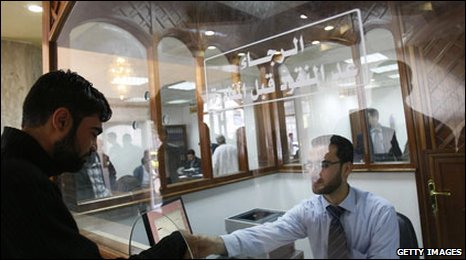
Investments worth £800bn are made through Islamic finance products.
Experts in Islamic finance believe their way of doing business has shielded them from the global credit crisis.
But how does it differ from conventional Western finance?
A former executive director of the International Monetary Fund, Dr Abbas Mirakhor, says wider Islamic economics relies on God’s guidance, handed down almost 1,400 years ago.
There is a “consciousness of a supreme creator and a system that he has provided”, he says.
What we know as the conventional Western way does not have that, which is “really the major difference between the two”, he adds.
In practical terms, the most significant difference is that charging interest is not allowed in Islamic finance.
Neither are most forms of speculative investment permitted, such as hedging or derivatives trading.
“We don’t recognise the concept of interest… to look for some profit from trading money,” explains Dr Bambang Brodjonegoro from the Islamic Development Bank.
“In the Islamic concept, money is strictly for the purpose of exchange or storing value, but not for the transaction of looking for excessive profit,” he says.
Sharing risks
How then, does an Islamic bank, and a customer who puts money in that bank, make a profit?
The system is asset-based, with tangible assets or commodities at the heart of it. There are buyers and sellers, not borrowers and lenders.
Here is a comparison.
In Los Angeles a customer who wants to borrow money to buy a car would go to a conventional bank and agree a loan. The bank would hand over the money.
There would be regular repayments, which include interest accrued on the loan.
In Lahore a customer could go to an Islamic bank and sign a contract with the bank to buy a car from them.
The bank would not loan the money but buy the car itself. Then it would sell it to the customer at a mark up.
The customer would agree to pay back the cost in instalments over a regular period.
One of the core principles at the heart of Islamic economics is risk sharing. The bank and the people who put their money in it share any profit, or loss, from investments.
“In Islam we appreciate merit, so if someone works harder in a business…they (the bank) will get the sharing benefit,” explains Dr Brodjonegoro.
“The more important thing is that there will be no bank that rules everything. It will be bank and borrowers at the same level and they share the risk and benefit.”
Alternative way
This sense of equality is important. It is one of the defining characteristics which proponents of Islamic economics say make it different from the conventional western way.
Islamic economics also highlights a belief in benefitting the wider Muslim community.
The former IMF Executive Director Dr Mirakhor says that it chimes with “a movement toward becoming more ‘other conscious’…having consciousness about the other fellow, about the general public interest.”
This contrasts with what he described as the “simple narrow basis of self interest which motivates, supposedly, the economic agents in the liberal economic system.”
Some see the Islamic model as an alternative. Others see it as complimentary to the system which has dominated the western world.
“I don think that this Islamic banking system is the alternative, that we have one or the other. I think this is a complimentary service, a way of doing service,” says Prof Ekmeleddin Ihsanoglu, Secretary General of the Organization of Islamic Countries.
“It needs to be an option there where people can find different ways of doing the same thing.”
Compromising principles
Islamic economics is not the exclusive preserve of Muslims.
London is emerging as a major financial centre for Islamic finance. Islamic banking products are also widely used by non Muslims in Malaysia.
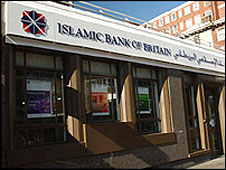
UK has 8th largest Islamic finance sector according to the DTI
“This is an alternative system that can be applied to everybody. Everybody can use it regardless of their religion,” says Dr Brodjonegoro from the Islamic Development Bank.
Major banks like Britain’s HSBC and Citi of the US have set up Islamic banking subsidiaries that are flourishing. Some of the champions of the Islamic way want to see business expand beyond the natural market of Muslim countries.
They believe that now, more than ever, there is a market for non Muslims who share in the values espoused in Islamic economics.
But there are some who fear that by expanding the Islamic way is becoming less Islamic.
Time to reflect
“Unfortunately what is happening is that Islamic finance in some ways is moving more and more closely to the conventional finance,” says Prof Habib Ahmed, a world authority on Islamic finance.
“If you look at the development in the past few years, Islamic finance appears to be mimicking most of the products of conventional finance.”
There has never been a better time to champion an economic model which is different to the one laying in shreds on Wall Street, says Prof Ahmed. But he believes that the Islamic concept is being diluted.
“As people after this crisis are looking for solutions…the Islamic finance industry is moving towards that very system,” he says.
“I think it is time for Islamic finance to pause and think of the direction it is taking”.
Ref: {BBC News – By Robin Brant – Malaysia correspondent
http://news.bbc.co.uk/2/hi/business/8025410.stm }





![[Image]](https://i0.wp.com/www.albalagh.net/_images/reason.jpg)


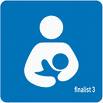
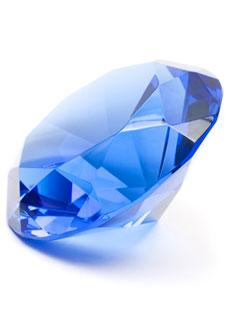
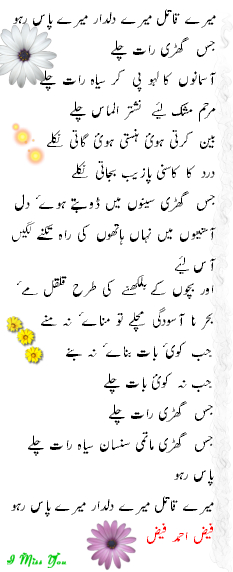

Your Musings